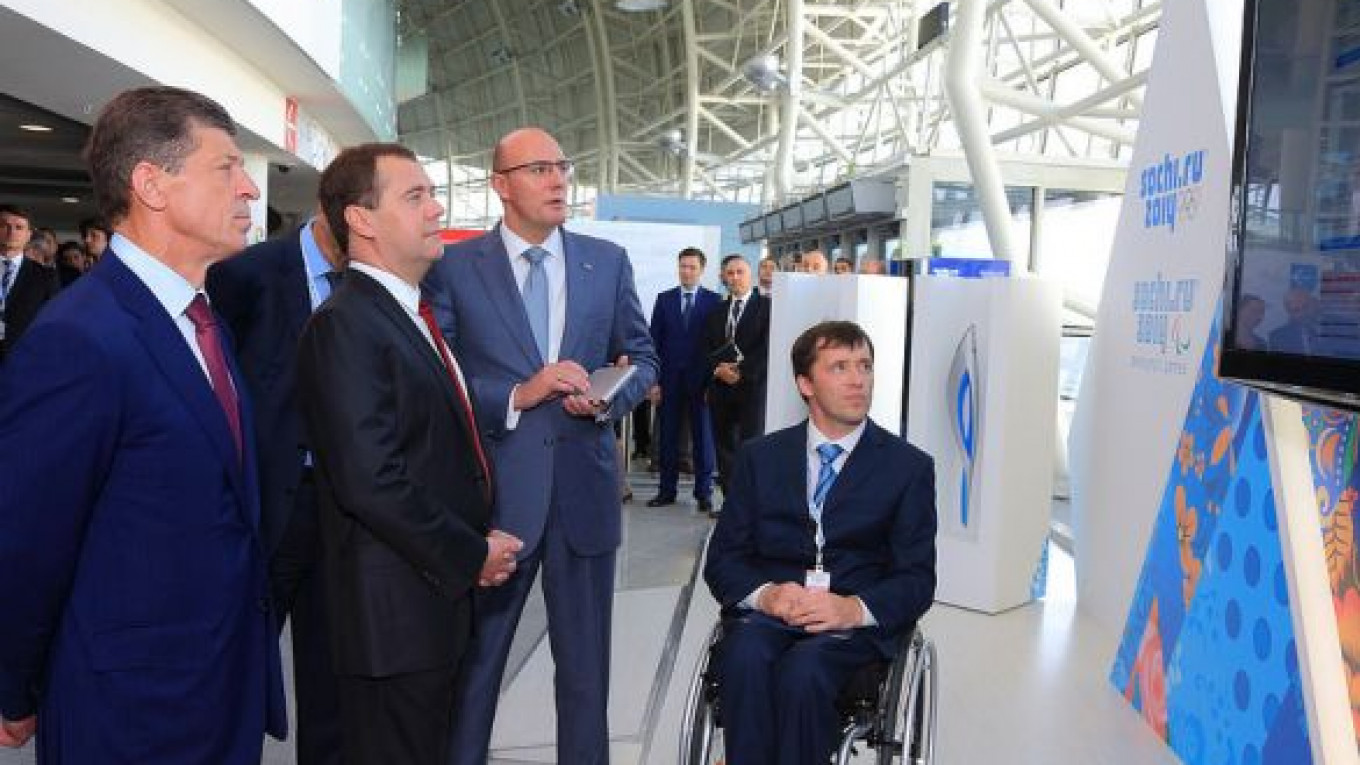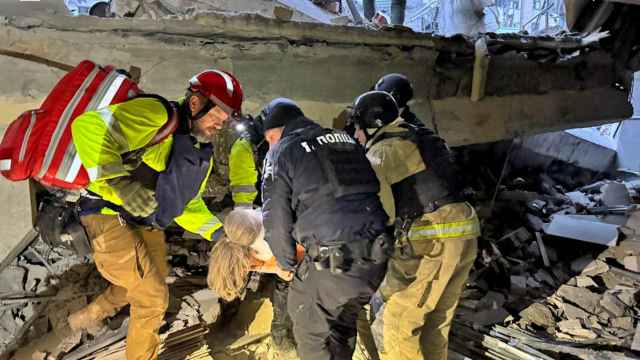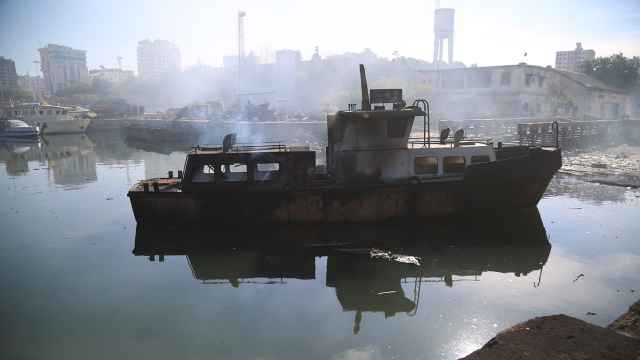Ticket sales for next year's Winter Paralympics in Sochi opened Friday, but Russia's top Paralympic official warned that the competition could be marred by swathes of empty seats.
Prime Minister Dmitry Medvedev watched as ticket sales went live and said he planned to attend.
Priced at between 350 and 450 rubles each ($11 to $14), most Paralympic Games tickets are cheaper than even the cheapest tickets for February's Winter Olympics, while the most expensive tickets for the Paralympic Games' opening ceremony run to 5,000 rubles apiece ($154).
Even those comparatively low prices might not be enough to fill the costly new arenas, Paralympic Committee head Mikhail Terentyev warned.
Terentyev, who won seven Paralympic medals as a skier before becoming a lawmaker and general secretary of his country's Paralympic Committee, told R-Sport that there "are significant concerns" about there being enough spectators to fill the stands, especially given the venue size.
"So far the International Paralympic Committee regards the Sochi 2014 organizing committee's plans to attract spectators with a certain caution," he said.
He also said 80 or 90 percent attendance at the March 7 to 16 Paralympics "would help not just Russia but the entire international paralympic movement attract sponsors, partners and to develop in the future."
Russia's Paralympians are among the most successful in the world and came second in the London 2012 medal table, but disabled sports are rarely shown on Russian TV and have a low public profile.
The Sochi Paralympics follow last year's Olympic Games in London, where most events were sold out and which IPC president Philip Craven hailed as "the greatest Paralympic Games ever."
Tickets for the Sochi 2014 Olympics went on sale in February to great fanfare, and several event finals were sold out within hours.
A Message from The Moscow Times:
Dear readers,
We are facing unprecedented challenges. Russia's Prosecutor General's Office has designated The Moscow Times as an "undesirable" organization, criminalizing our work and putting our staff at risk of prosecution. This follows our earlier unjust labeling as a "foreign agent."
These actions are direct attempts to silence independent journalism in Russia. The authorities claim our work "discredits the decisions of the Russian leadership." We see things differently: we strive to provide accurate, unbiased reporting on Russia.
We, the journalists of The Moscow Times, refuse to be silenced. But to continue our work, we need your help.
Your support, no matter how small, makes a world of difference. If you can, please support us monthly starting from just $2. It's quick to set up, and every contribution makes a significant impact.
By supporting The Moscow Times, you're defending open, independent journalism in the face of repression. Thank you for standing with us.
Remind me later.






